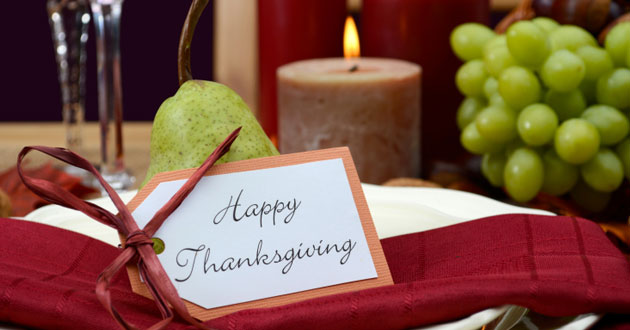Feasting on humble pie

Imagine if this had happened to you. It happened in a restaurant in Germany.
The restaurant had high tables where patrons would stand and eat a quick lunch. A woman went into the restaurant, bought a bowl of soup and a sausage sandwich at the counter, and carried them to an empty table. She put her purse underneath, and went back to the counter to get a spoon for her soup.
When she returned, a dark-skinned stranger was standing at the table, happily eating her soup. At first she was shocked. Then furious. Within seconds, she decided that, if this man wished to be so bold, then so would she. She stood at the opposite side of the table and began eating from the same bowl. But instead of being embarrassed or intimidated, the man continued to eat. He did not speak German, so he couldn’t understand what the woman was saying to him, but he kept a smile on his face as they ate together.
Seeming to provoke her further, the man offered her half of the sausage sandwich.
When they were finished, he, still smiling, offered his hand across the table in a handshake. Still flabbergasted, the woman shook his hand. Then the man left the restaurant. When she looked under the table for her purse, it was gone. She knew it! He was a thief! All of her money, credit cards, personal information, taken by this brazen man!
As she scanned the room to call out for help, she noticed a nearby table, with a bowl of now-cold soup, a sausage sandwich, and her purse underneath. It had never occurred to her that she had gone to the wrong table.
What is our true vocation? To be the man who, although he could not understand what was being said about him, makes room at his table.
The theologian Peter van Breemen said, “Vocation is a dynamic reality, constantly interacting with every aspect of the here and now.”
The Sunday School class I teach has been looking at the story of Naaman in 2 Kings. It’s a fascinating story about a guy who fits every definition of success—he’s powerful, influential, rich, is known for winning, has servants, and he has everyone’s attention. That’s what our culture tells us is important, right? But he also has leprosy, a gross, disgusting skin disease that could end up killing him.
In his house is a servant girl. Actually it’s his wife’s servant girl. She was a captive from one of the raids Naaman’s army had conducted. Most estimates have her age at around 12 to 14.
There are a lot of aspects of Naaman’s story that are fascinating, and they are also useful to think about in our present age. It’s a great story that happened “back then,” but is also a useful parable for today. What I find most interesting about the story is the seemingly minor role that the servant girl plays, and how it relates to our true vocation.
The girl is in the middle of circumstances that none of us would choose for ourselves. Against her will, she’s away from her home and family, serving the people who conquered her homeland. She’s from a different race. If anyone has the right to be bitter, it’s her. She hears that Naaman has leprosy. If we were in her shoes, wouldn’t we be tempted to say, “Serves you right—that’s what you get for invading my country, taking me as a slave and making me serve your household?”
Instead, she says, “If only Naaman would see the prophet in Israel, he’d be healed.”
It makes sense to curse our circumstances. But our true vocation calls us to Something Bigger.
Our False Self would say to Naaman, “I hope you rot and die.”
Our True Self says, “I know where you can get help.”
Both the German man at the restaurant table and the servant girl in 2 Kings faced the “here and now” parts of their lives and saw how God could still use them. They set aside their egos and their rights, and humbled themselves to their true vocation.
Think about your own life. Does your attitude toward the circumstances of your life keep you from living out God’s call on you?
— by Dean Nelson
Dean Nelson directs the journalism program at Point Loma Nazarene University in San Diego. His book on seeing God in everyday life is God Hides in Plain Sight: How to See the Sacred in a Chaotic World.





